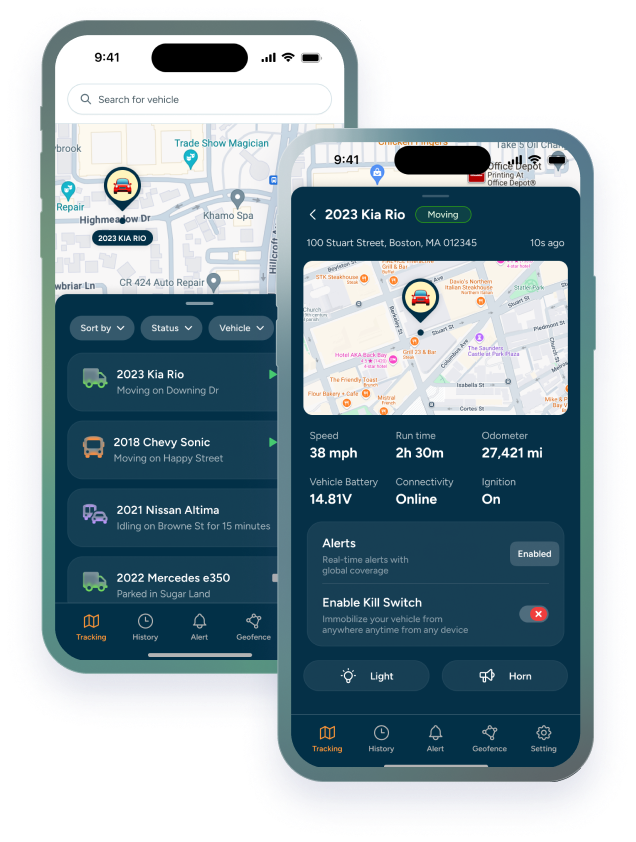The Rise of GPS Tracking Technology in Modern Cars: Which Vehicles Have Built-In Systems?
In the realm of automotive technology, GPS tracking has emerged as a fundamental feature enhancing the functionalities and security of new cars. The integration of GPS tracking systems in vehicles has revolutionized the driving experience, offering benefits that range from navigation assistance to theft recovery. Let’s explore the prevalence of GPS tracking technology in new cars and the advantages it provides to car owners.
The Evolution of GPS Tracking in New Cars:
The advent of GPS tracking systems in vehicles has transformed the way cars operate and how drivers interact with their vehicles. A GPS tracker, utilizing the Global Positioning System (GPS), provides real-time location data, enabling precise tracking and navigation capabilities within a vehicle.
Which Cars Have GPS Tracking Built-In?
Today, an increasing number of new cars come equipped with built-in GPS tracking systems. Luxury and high-end vehicles have often led the way in integrating sophisticated tracking technology, making GPS trackers a standard or optional feature in models from renowned brands like Mercedes-Benz, BMW, and Audi.
75-Year-Old Bodybuilder Robby Robinson Shares His Wisdom test suspension pre workout hulk hogan teases collaboration with famous bodybuilder
Moreover, fleet vehicles, commonly used by businesses, are frequently equipped with GPS tracking systems as part of their fleet management solutions. These tracking devices aid in optimizing routes, monitoring vehicle locations, and ensuring operational efficiency.
Advantages of Built-In GPS Tracking Systems:
Enhanced Navigation: Built-in GPS tracking systems offer advanced navigation capabilities, providing drivers with turn-by-turn directions, real-time traffic updates, and optimized routes for a smoother driving experience.
Vehicle Security: GPS trackers contribute significantly to vehicle security by assisting in theft recovery. In the unfortunate event of theft, the system provides precise location data, aiding law enforcement in locating and recovering the stolen vehicle.
Fleet Management Efficiency: For businesses operating fleets of vehicles, GPS tracking systems enable comprehensive fleet management. These systems assist in monitoring vehicles, optimizing routes to reduce fuel consumption, and ensuring compliance with safety regulations.
Emergency Response Support: Some GPS tracking devices have emergency assistance features. In case of accidents or emergencies, these systems transmit location data to emergency services, facilitating quicker response times.
Disadvantages of Built-In GPS Tracking Systems
Vehicles that come equipped with built-in GPS trackers are convenient, the main disadvantage is that when it comes down to vehicle security is that thieves have learned how to disable the built-in devices. The location of these GPS harnesses/trackers in these vehicles are fairly consistent across models so once a thief has figured out how to disable one then he/she are able to disable them all. With third-party GPS trackers installation location are much more flexible and can vary from application to application.
How GPS Tracking Technology Works:
GPS tracking technology utilizes satellites to determine the vehicle’s location accurately. The GPS tracker within the car communicates with these satellites to gather location data, which is then transmitted to a central system. Car owners can access this information through integrated interfaces within the vehicle or dedicated mobile apps.
The Future of GPS Tracking in New Cars:
As technology continues to evolve, the integration of GPS tracking systems is expected to become more prevalent across a broader spectrum of vehicles, including mid-range and standard cars. Manufacturers are recognizing the importance of offering these systems as standard or optional features, catering to the growing demand from consumers for enhanced navigation and security features.
The integration of built-in GPS tracking systems in modern cars marks a significant advancement in automotive technology. These systems offer invaluable advantages to car owners, ranging from navigation assistance to heightened security measures.
When considering the purchase of a new car, individuals intrigued by the benefits of GPS tracking technology should explore the specific features offered by different models and manufacturers. Understanding the functionality, accuracy, and ease of use of the GPS tracking system in a potential vehicle purchase can significantly enhance the driving experience and provide peace of mind to car owners.
As the automotive industry continues to embrace technological advancements, the inclusion of GPS tracking technology in vehicles will likely become a standard feature, providing car owners with a more connected, secure, and efficient driving experience.
This article explores the integration of GPS tracking systems in modern cars, highlighting their prevalence, advantages, and the impact they have on the driving experience for car owners.
